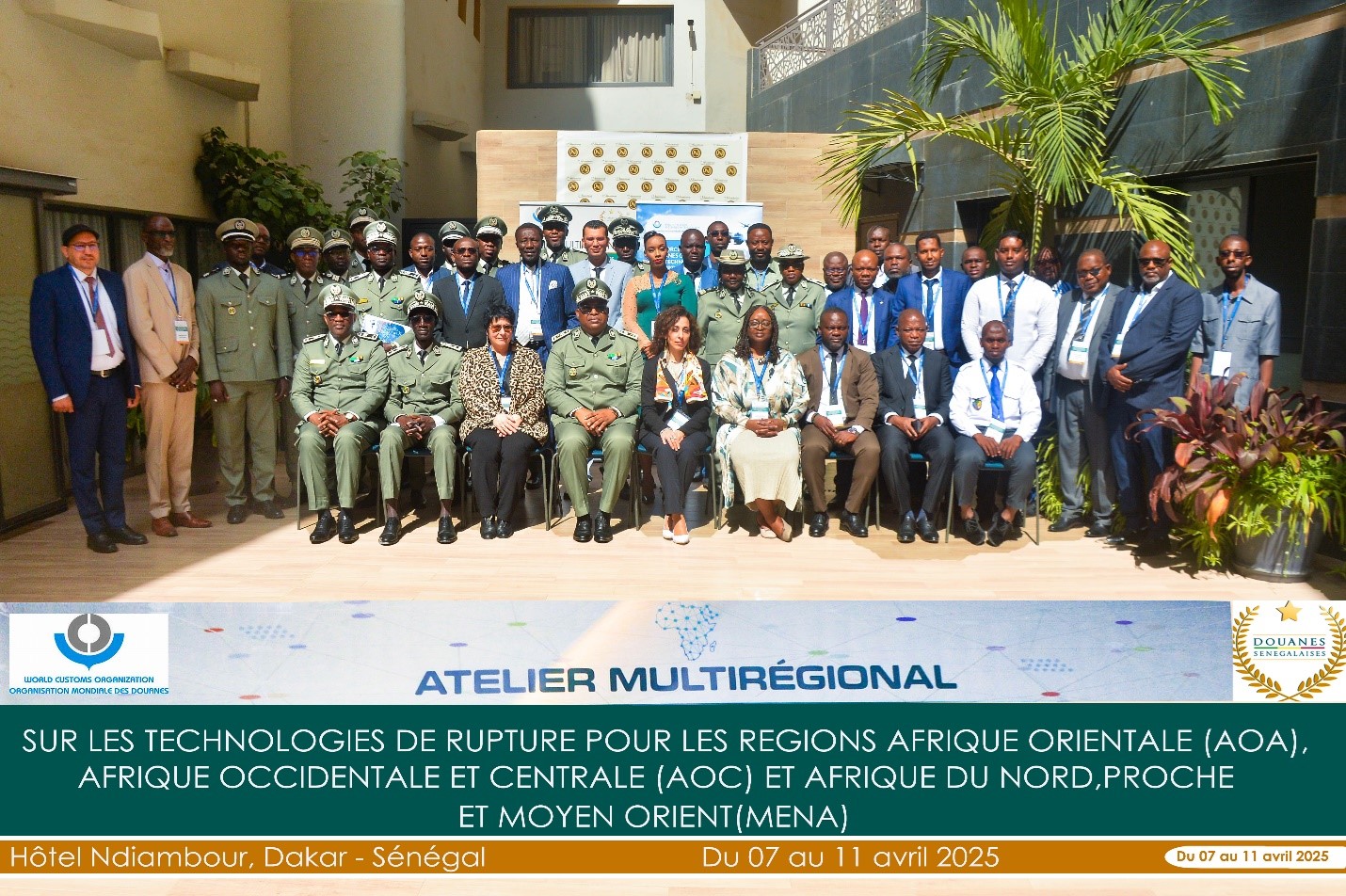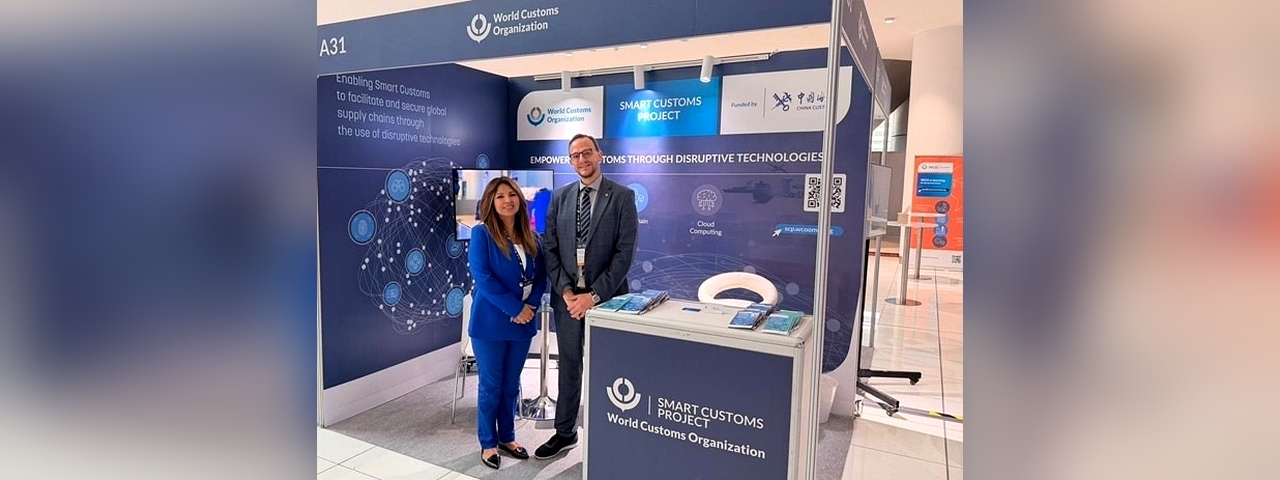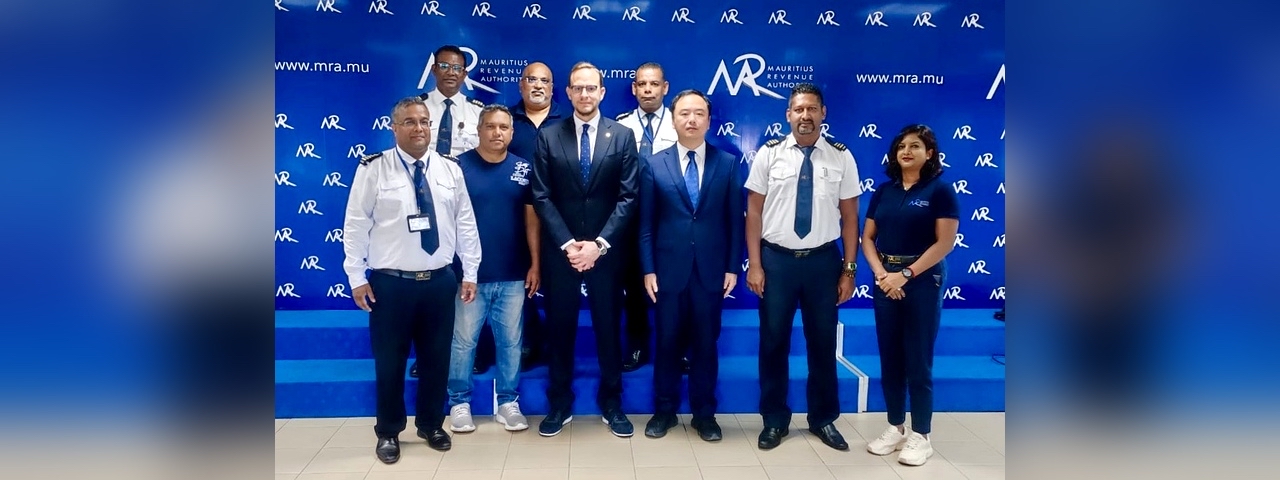The issue of developing Smart Customs takes centre stage at the WCO’s Multi-Regional Workshop on Disruptive Technologies

From 7 to 11 April 2025, as part of its Smart Customs Project, the WCO organized a Multi-Regional Workshop on Disruptive Technologies in Dakar, Senegal. This event, which received financial support from the Customs Cooperation Fund of China (CCF China), was attended by 32 experts from 21 French-speaking countries in the East and Southern Africa (ESA), West and Central Africa (WCA) and North of Africa, Near and Middle East (MENA) regions for the purpose of exchanging their views and experiences of the potential and impact of emerging technologies such as artificial intelligence (AI), blockchain and the Internet of Things (IoT) when integrated into Customs operations and missions.
The opening ceremony for the workshop was chaired by the Coordinator of the Senegal Directorate General of Customs, who highlighted the tremendous opportunities offered by disruptive technologies in the areas of risk management, trade facilitation and the fight against transnational organized crime. He also emphasized the enormous relevance of the workshop, as it provided an excellent forum for dialogue between technical administrators and project managers, facilitating the implementation of technological innovation strategies and contributing to the development of Smart Customs capable of adapting to the rapidly changing global technological landscape.
Participants engaged in forward-thinking discussions on innovation and the future of technology in Customs processes, delving into a diverse array of topics related to disruptive technologies, including technical requirements, business processes, potential risks, results achieved, and lessons learned. In particular, they discussed several practical examples of migrating to new computerized systems.
During the workshop, participants visited the Senegalese Customs Operational Command Centre, where they were able to learn first-hand about how the electronic tracking of goods in transit works, following the implementation of an initiative as part of a Customs surveillance digitalization project. The visit highlighted the importance of a strategic partnership with stakeholders, as well as the need to apply performance measurement to systems implemented, right from their design stage and throughout their subsequent development, and the introduction of technological innovations. It also highlighted the importance of using pilots to test the reliability and effectiveness of innovation projects on a reasonable scale, while not losing sight of the objective of achieving coordinated border management solutions for efficient data exchange at both national and international levels.
The key lessons learned from this workshop were the crucial importance of comprehensive capacity building and the adoption of a strategic and scalable approach to integrating disruptive technologies, particularly through the implementation of systems that include humans in the loop.
Major challenges include interoperability between different systems, data quality, cybersecurity considerations, the need for effective change management, appropriate communication and skills transfer when outsourcing technology development.
With regard to the adoption of AI technology, participants acknowledged that this topic raised some concerns, but these were allayed during their discussions, which were based on several practical achievements obtained through the implementation of the WCO Smart Customs Project, in particular the Detailed Report on the Adoption of Artificial Intelligence and Machine Learning in Customs, the Case Study on the experience of China Customs and the AI/ML Readiness Self-Assessment Tool.
This event, the third in a series of regional and multi-regional workshops organized under the Smart Customs Project, allowed participants to familiarize themselves with the use of the Smart Customs Community Portal and helped strengthen relationships within a vibrant community of Customs professionals, which already comprises 181 experts representing 135 WCO Members.
In his closing remarks, the Director of IT Systems at Senegal Customs emphasized the importance of international cooperation in strengthening connections between experts and WCO Members.
The Smart Customs Project team will continue to organize regional workshops on disruptive technologies in other WCO regions. These workshops provide an essential platform for networking and collaborative learning, thereby contributing to the efforts being made to bridge the digital divide and ensuring a more equitable distribution of these efforts among Members.


